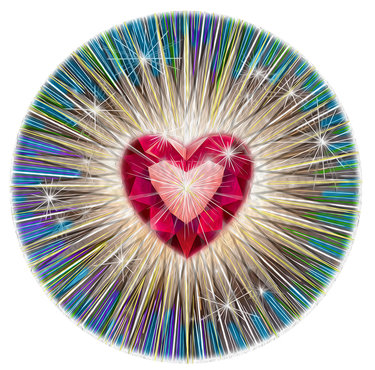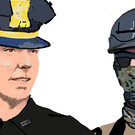From the editor: Unexpected gifts and everyday miracles
There is something about lying on a hospital gurney that makes you reflect not just on the worth of your own life but on the trust you have in humanity at large.
You are ostensibly helpless, unable to navigate, so you must trust the person — someone you don’t know — guiding you through the hospital corridors.
I couldn’t swallow last Wednesday night so I drove myself to the hospital emergency room, stopping along the way to spit great swaths of saliva that couldn’t be swallowed.
After a sleepless night during which I saw a series of caring doctors, nurses, and aids, I was wheeled on a gurney for an endoscopy, which solved my problem.
The man who wheeled me said he had worked at the hospital for six years. He was from Afghanistan. His homeland, he said, is in shambles. “People are selling their children for the money,” he said.
He works double shifts to get money to send to his family in Afghanistan. He is waiting to get his own citizenship here and has contacted everyone from senators to local officials, he said, in hopes of reuniting with his family.
Hearing his story made my own problems seem small.
When I got to the anesthesiologist, a nurse wearing a sapphire blue turban complimented my ring. Her almond eyes sparkled above her surgical mask as bright as the diamond in my ring.
I told her the ring had belonged to my mother, now dead, which brought tears to my eyes, feeling her comforting presence there.
As I lay on my gurney, I remembered another time, years ago, when I was wheeled down a hospital corridor to surgery. It was Christmastime, a time of darkness, and a time of miracles.
The word miracle comes from the Latin word that means “to wonder at.” There are many things in our midst to wonder at, to be in awe of. We can receive these everyday miracles as gifts in a dark season — like the one in which we now find ourselves: a white supremicist has indiscriminately murdered Black people in our state; in Texas, schoolchildren and their teachers have been massacred.
I felt alone and frightened back then, too, as I lay on my back in a strange place with no one I knew at hand. I shivered. The man wheeling my gurney, from what I could see above his blue mask and below his blue cap, looked elderly; his hair was white, his skin was the color of tea, and his eyes were deep and soulful — I thought, perhaps, he was from India.
He wheeled me to a room where others waited on gurneys, too. Canned Christmas music was playing; it grated on my nerves: “Outside the snow is falling and friends are calling yoo-hoo. It’s lovely weather for a sleigh ride together with you.”
It wasn’t lovely weather; a gray sky was spitting freezing rain. My teenage daughter had gripped her steering wheel with resolve and battled the ice and slush all the way downtown to get me to the hospital at the appointed 6:50 a.m. There were no friends calling yoo-hoo. I felt alienated by the relentless cheerfulness of the music.
Then something miraculous happened. The man standing at the head of my gurney began to sing — more of a chant really. It was in a language I didn’t know, but I felt I understood. There was something sad and deep and true about the sounds he made; it was comforting.
I thought the couple whose young son lay on the gurney next to me felt it, too. The mother rocked her child to the sound of the chant, and the boy smiled. It seemed, for a moment, as if we who had been strangers, looking inward only at our own miseries, were suddenly looking outward at each other. I no longer felt cold. I felt as warm as if someone had wrapped me in a blanket.
I was wheeled away to the operating room before I had a chance to thank the man. But I don’t think he expected thanks, really. His wasn’t that sort of a gift.
Some of the best gifts are the ones we give to strangers with no hope of return or credit.
I felt that last Thursday as I emerged from the hospital into the bright sunlight, eager to get back to my work in time to cover an anti-hate rally the students at Guilderland High School were holding.
A year ago, I had covered their first rally and been moved by the stories they told, ripped from the heart. I felt the students understood that, in the United States of America, our greatest strength lies in our diversity. They understood this even though many of them were hurting because of the prejudices they had suffered. Despite their pain — or maybe because of it — they had the courage to speak.
I anticipated the gift of their bracing honesty as I hurried to the rally. I was not disappointed. The students’ youthful assurance that they could make the world a better place was a gift in itself. It gave me, and should give us all, hope.
Here are some of the wise words I heard:
— Understanding others requires speaking less and listening more;
— No one should be treated as anything less than a human;
— Be proud of your culture;
— We must stand up against racism as we see it happening;
— We women should not make ourselves smaller just to gratify a man’s fragile ego;
— Our job is to open minds and change them;
— Cat-calling is not a compliment — it’s harassment;
— I’m just glad to hear that I’m not alone … I’m proud of everyone here;
— Nobody has the right to take your life away, not even you;
— My parents came to America for a better life, following a path filled with immeasurable sacrifices;
— The story of humanity is not told by one narrator;
— Education is ignorance’s greatest fear;
— We all have the power to be inclusive;
— I’m called a terrorist or a murderer for practicing my religion; and
— Masks are not just to protect yourself from the virus; they are a sign of respect to say, “I see you.”
When the students had finished their speeches, the school’s director of diversity, equity, and inclusion said for every story told that day, many more were unspoken. “I implore you to keep these stories written in the tablet of your heart,” he said.
I will. I think a heart grows larger when it encompasses others. That is the miracle of inclusion.
— Melissa Hale-Spencer, editor



